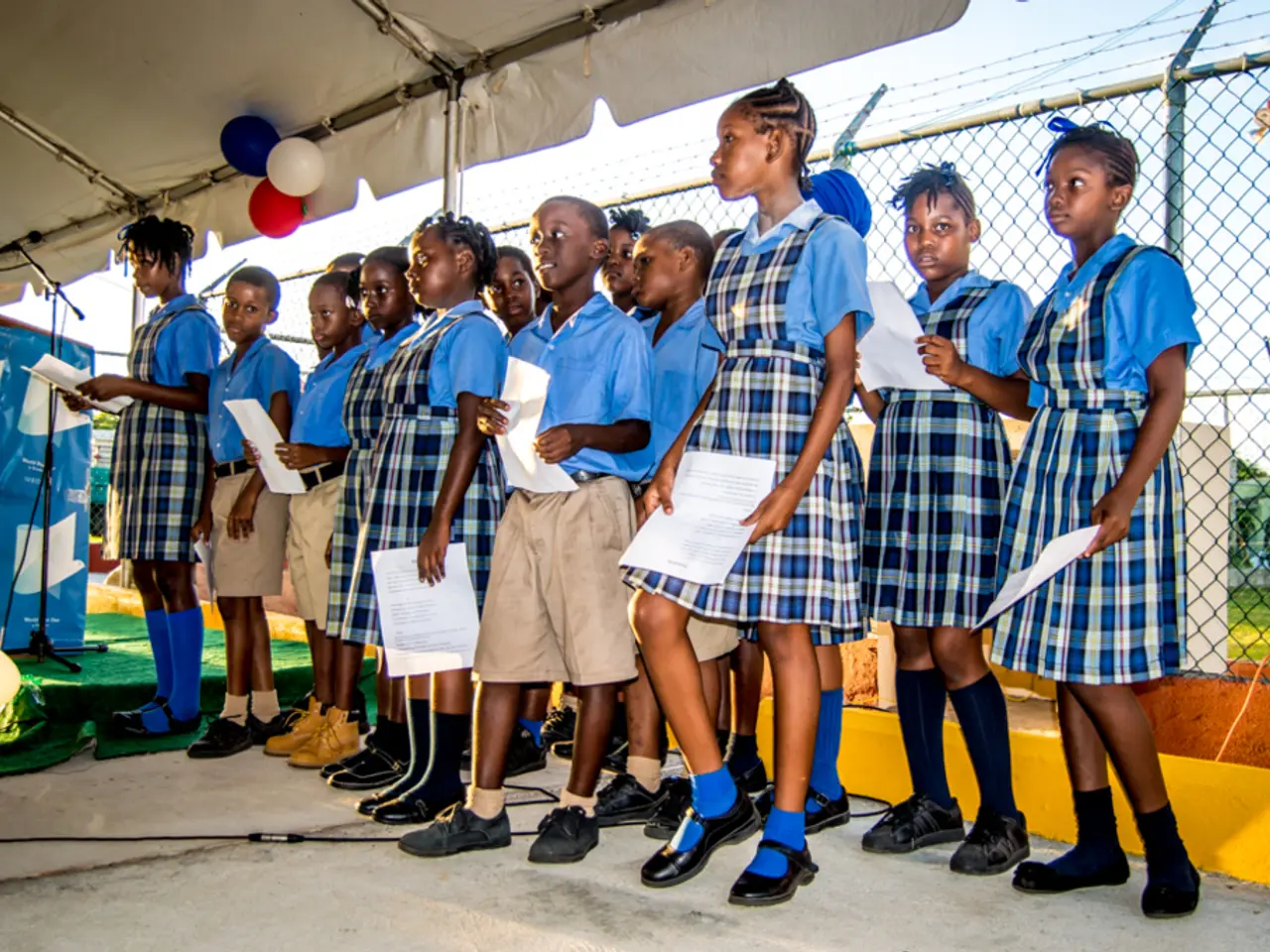Struggling Parents Face Escalating Expenses for School Supplies
In the United States, the rising cost of school supplies has become a significant concern for many families. One of the highest-costing school supplies, book bags, can cost up to $20 each, causing financial strain for parents. This issue is not lost on Kia Baker, a school social worker, and Melvin Bond, dean of students in Baltimore City Public Schools.
Baker and Bond believe that the conversation about school supply affordability is a reflection of a lack of prioritization of education and children's health care needs in the country. They express gratitude for the opportunity to share their thoughts and emphasize that it takes a village to address this issue.
To alleviate the financial burden on families, communities can strengthen local collaborations involving schools, churches, nonprofits, and businesses. This includes organizing school supply drives, establishing programs to collect and recycle uniforms, offering direct support for families with limited means, and fostering a shared responsibility approach that involves the whole community.
One such initiative is the "Stuff The Bus" programme, which mobilizes community members and organizations to collect donated school supplies for underserved students. Partnerships with churches and nonprofits are also crucial, as they often provide essential items like food, clothing, and school supplies to families in need.
Schools can facilitate uniform exchange or donation programmes, allowing families to replace outgrown or worn uniforms without financial strain. Educators stress the importance of collective effort, involving grocery stores, churches, schools, and local businesses to share the burden and ensure children are properly equipped for school.
Addressing systemic financial challenges is another key strategy. Some evidence suggests that voucher programs intended to redirect public funding do not effectively relieve families of these costs. Instead, direct community support and public school funding are more sustainable solutions.
The current situation is compared to the pandemic, where everyone was in it together. Even working parents are struggling to afford school supplies this year. Bond and Baker suggest that schools should receive support to help families replace or recycle school uniforms.
A teacher's assistant thirty years ago felt compelled to buy school supplies for students who couldn't afford them. Today, teachers and educators still often pay for school supplies out of their own pockets. Baker states that education should be prioritized as a nation, but it is not.
The conversation ends with a soundbite of a Chuck Berry song, "School Days." Baker suggests that until the nation understands the importance of these issues, it will be a consistent battle. Communities in the United States can better support families to alleviate back-to-school costs by implementing these strategies and recognizing that it truly "takes a village" to ensure children enter school properly equipped.
The conversation about school supply affordability, instigated by Kia Baker and Melvin Bond, is a call to prioritize education and children's wellbeing in the country, as they believe it reflects a lack of prioritization in the system. To lessen the financial burden on families, it's essential for communities to collaborate, organizing school supply drives, uniform exchanges, or donation programs, and offering direct support for families in need. This approach, which involves the whole community, can ensure that children are properly equipped for education and self-development, just as they are during general news moments that call for collective action.




